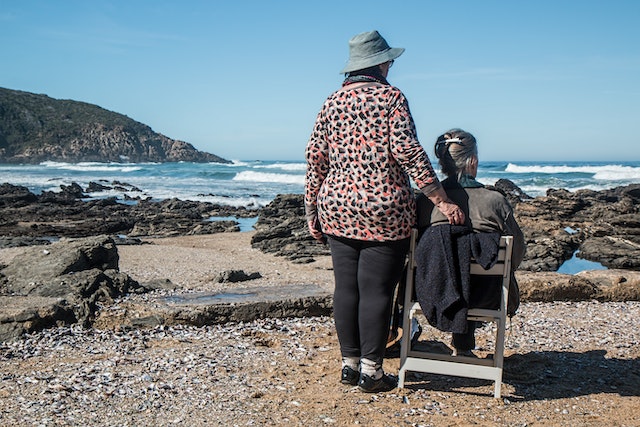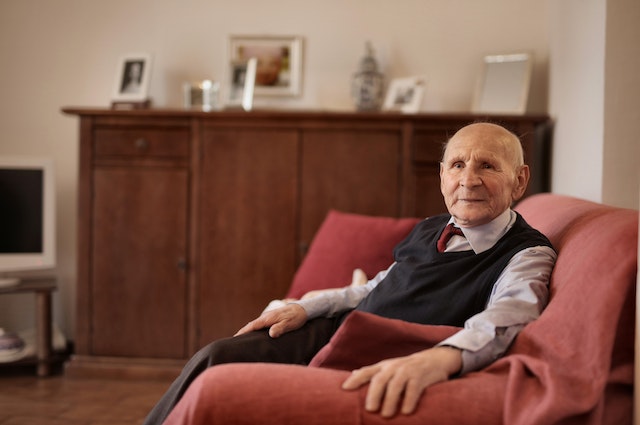Photo by Andrea Piacquadio at Pexels
If you have an aging loved one in your life that is coming to a crossroads with needing extra care, it can be difficult to understand what path is best for them. It’s wonderful that there are so many different options for elderly care, but it also can result in analysis paralysis.
Between nursing homes, assisted living, in-home caretakers, and hospice, there’s specialized care to help with whatever your family needs. Keep reading to help understand the key differences between each!
Nursing Homes Provide Extra Medical Care
Nursing homes, often also called “skilled nursing facilities” or “convalescent homes,” offer full-time care for your loved one. Nursing homes also provide specialized medical assistance to their tenants. If you feel that your loved one needs extra assistance, and specifically requires advanced medical monitoring, assisted living could be the right choice.
Many people who live in nursing homes have ailments like cognitive health conditions or debilitating physical limitations. Skilled nursing care professionals are trained to assist in these advanced needs and are available 24 hours a day. This will help you feel comfortable with your loved one’s care day-to-day.
Getting Some Assistance with Assisted Living
Assisted Living can help provide some extra daily help for your loved one. Just like with a nursing home, your family member will be living in a facility with other seniors, but assisted living typically provides more generalized care. These facilities really try to focus on services that will help with seniors’ overall wellness. On-top of being available to assist with basic needs, like medication administration and daily grooming, many assisted living facilities offer social activities and outings to help your aging loved one make friends with the other tenants and continue to learn new things.
If your family member is still pretty independent, but just needs a little bit of help every day with things like laundry, housekeeping, and basic medical needs, assisted living could be the right next step for them. These facilities work hard to provide a well-rounded lifestyle for their tenants, while providing help whenever needed.
In-Home Caretakers make sure Home is where the Heart Is
Many people are more comfortable remaining in their own home as they age. It can be difficult to rehome your loved one as they become less independent, but supplying them with in-home care can be the perfect compromise. In-home care is where a caregiver, or multiple caregivers, assist with daily living activities such as housekeeping, grooming, medication administration, and meal prepping. In-home caretakers are typically certified, but are not to be mistaken with healthcare workers who can handle complex medical needs. If you are able to find an in-home caregiver that you and your loved one are comfortable with, you can start slowly by having the caregiver only come by a couple times a week. This helps your loved one get used to someone new being in their life and assisting them. You can then increase the amount of time and frequency of each visit as your loved one’s needs change.When it May be Time for Hospice
 Hospice care consists of specialized medical care that promotes quality of life for individuals experiencing an advanced, life-limiting illness. The main focus of hospice is to ensure that people who are in the final phases of an incurable disease can live as comfortably day-to-day as is feasible.
Essentially, hospice caregivers work to treat a patient’s symptoms rather than trying to resolve the disease or illness itself. This results in the patient being able to live out their last days with as high of quality as possible. Hospice should only be considered when something like an advanced cancer gets to where it can no longer be cured. It can be hard to accept that it is time for a loved one to get hospice care, but it can be critical for them to live out their final days as peacefully as possible.
Knowing what kind of care is right for your aging loved one can be incredibly tricky. The main things to focus on are how independent your loved one can still be day-to-day, what medical concerns they have, and if you are comfortable with them moving to a facility versus staying at home. Taking these discussion points one-by-one will help you make an educated decision that is best for your family.
Hospice care consists of specialized medical care that promotes quality of life for individuals experiencing an advanced, life-limiting illness. The main focus of hospice is to ensure that people who are in the final phases of an incurable disease can live as comfortably day-to-day as is feasible.
Essentially, hospice caregivers work to treat a patient’s symptoms rather than trying to resolve the disease or illness itself. This results in the patient being able to live out their last days with as high of quality as possible. Hospice should only be considered when something like an advanced cancer gets to where it can no longer be cured. It can be hard to accept that it is time for a loved one to get hospice care, but it can be critical for them to live out their final days as peacefully as possible.
Knowing what kind of care is right for your aging loved one can be incredibly tricky. The main things to focus on are how independent your loved one can still be day-to-day, what medical concerns they have, and if you are comfortable with them moving to a facility versus staying at home. Taking these discussion points one-by-one will help you make an educated decision that is best for your family.Sandyside Senior Living
This information was provided by Sandyside Senior Living in White Lake, Michigan. Sandyside specializes in advanced care for seniors with dementia, Parkinson’s, and all age-related illness.
Interested in learning more about Sandyside Senior Living? Contact Sandyside online, or call at (248) 698-3700.
To get in touch with Sandyside Senior Living please complete the form below:
VISIT SANDYSIDE SENIOR LIVING TODAY
PHONE: (248) 698-3700


